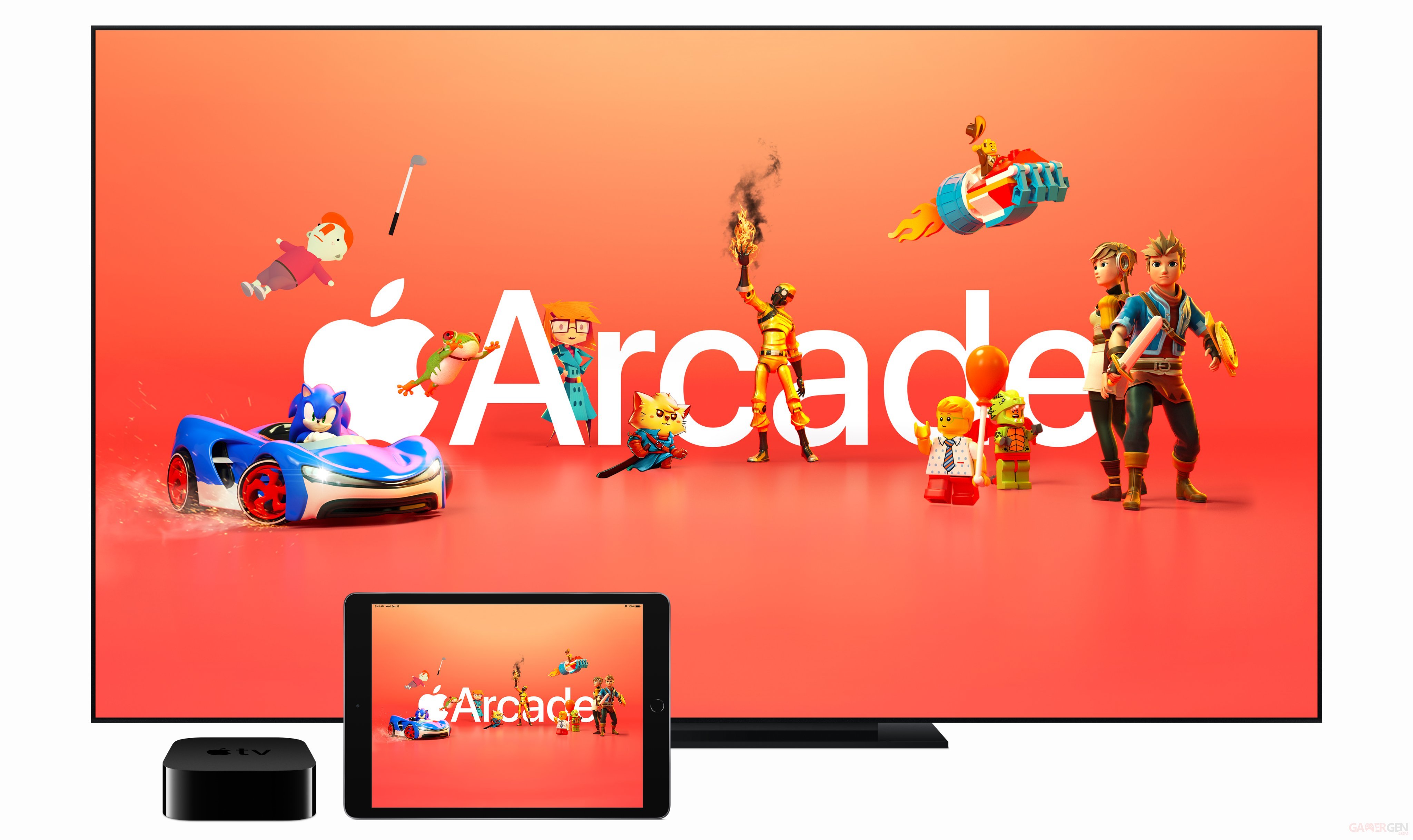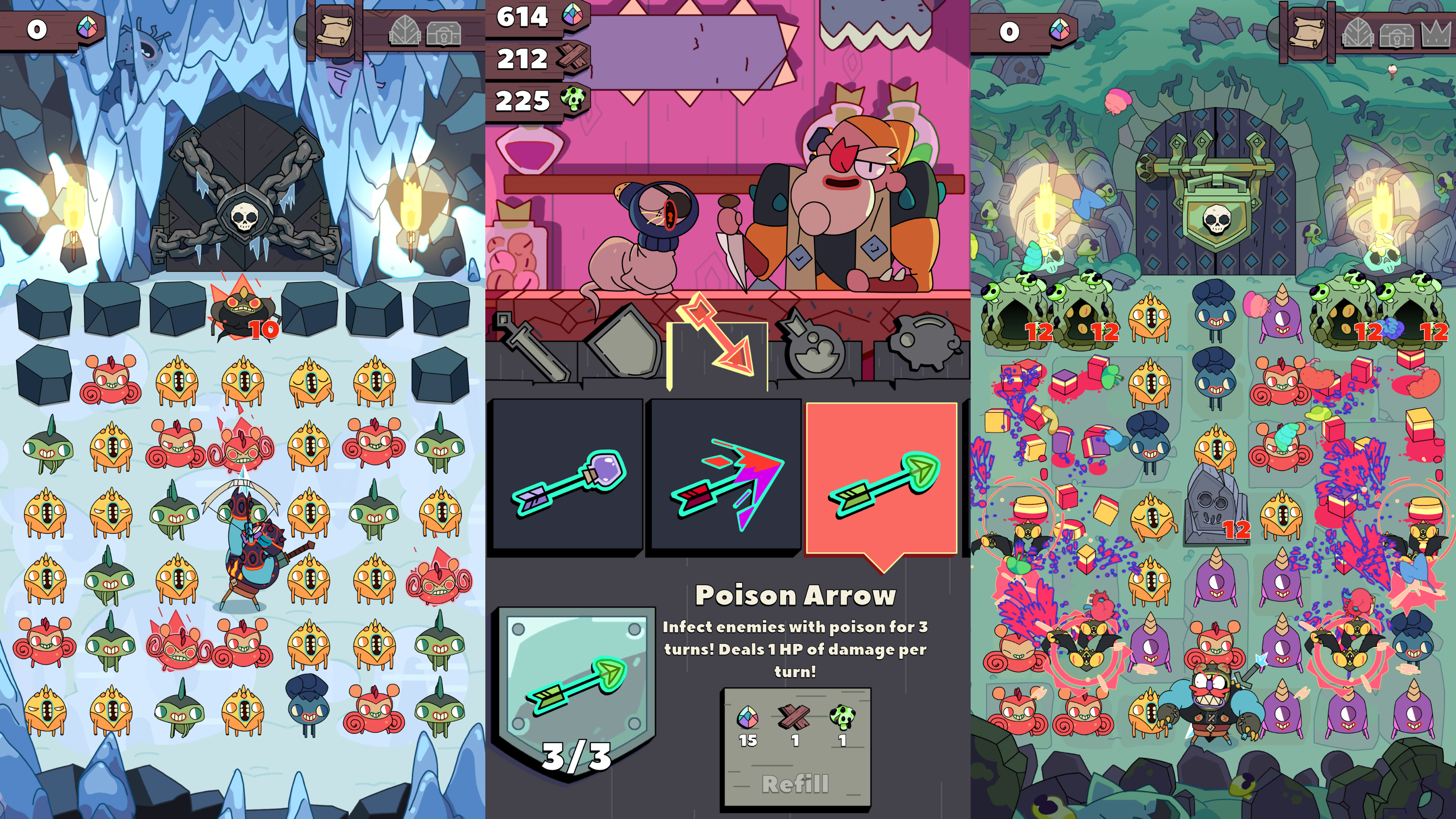Apple Arcade could soon have some much more engaging games, according to report
Some Apple Arcade games in development reportedly cancelled

Do you like Apple Arcade? While some users have been proud fans of it, the games service doesn't seem to have taken off since its September inception, and it looks like Apple may have identified an issue - the games don't hook you beyond the one-month free trial.
Months ago, Apple cancelled its contracts for a number of Apple Arcade games and chased down other titles as part of a strategy shift that aims to improve subscriber retention, according to a new Bloomberg report.
The strategy? Put out more games that keep players ‘engaged’ and playing beyond the service’s month-long free trial, and by extension, cut out the titles in the pipeline that Apple doesn’t expect will fit this bill.
The report cited Grindstone as an example that fits this criteria: an addictive puzzler that was lauded by Polygon and others for keeping players hooked far longer than other launch titles in Apple Arcade’s 60-plus game lineup. Even after growing to 120 titles today, with more added every month, the service doesn’t feature the amount of bona fide hits that keep subscribers hooked.

Apple Arcade has a wide range of games, but some are more calming and experiential than the simple, repetitive, yet replayable gameplay of Grindstone and others on the service. The monthly $4.99 / £4.99 / AU$7.99 fee gives subscribers access to the full game library without ads or in-game monetization, which is appealing – but this strategy shift suggests the service needs more to justify its price to consumers.
Thus, Apple told some developers in mid-April that their Apple Arcade games didn’t have ‘the level of “engagement’ Apple is seeking,’ per Bloomberg, and cancelled their contracts. Though they were paid according to how far they’d come in development, this left some of the affected developers financially challenged, especially amid the pandemic.
It's unclear how many games were affected, and how this shift will change the Apple Arcade game library as a whole. From its introduction in April 2019 and release in September, it was clear the tech giant was trying to appeal to multiple crowds – primarily families, mobile gamers, and Apple lifers who could play on most of the company's devices.
Get daily insight, inspiration and deals in your inbox
Sign up for breaking news, reviews, opinion, top tech deals, and more.
The subsequent lineup has been a unique blend of stylized and thoughtful but not particularly action-packed games that are deliberately unlike popular titles in mainstream gaming. Nothing like The Last of Us 2, or Call of Duty: Modern Warfare, or Assassin's Creed. While Grindstone isn't, either, Apple's shift could open the door to more traditionally-appealing games.
But we won't know until Apple signs on new developers – or likely, when those games are ready to come out on Apple Arcade. If there's one thing we know about Apple, it's that we know very little.
- The best Apple Arcade games for iPhone, iPad, and Apple TV
- Best Xbox Game Pass games: everything you need to know about Microsoft's game subscription service
- Best PlayStation Now games: the top titles on Sony's game subscription service
The Apple Arcade black box
Apple Arcade’s original pitch appealed to both gamers, who wouldn’t have to deal with microtransactions, and developers, who were assured pay through their title’s development and release on the service without having to include in-game monetization schemes. But the exact terms were never made public, and since the tech giant hasn’t released subscription or revenue data, it’s unclear how successful Apple Arcade has been.
Or, in other words, how much Apple’s reported $500 million investment in the service that Financial Times reported in April 2019 has paid off. Thus far, the tech giant has budgeted tens of millions of dollars to help developers make games for Apple Arcade, and spent between $1 million and $5 million on several titles, according to Bloomberg’s new report.
Apple, notoriously coy with details, has only released info on the success of the umbrella category that Apple Arcade falls under: Apple Services. Along with the App Store, Apple Music, and Apple TV Plus, the category increased sales to $13.3 billion in Q1 2020, up from $11.4 billion in the same period last year. It remains uncertain how much Apple Arcade, which launched in September 2019, is responsible for that gain.
Thus, insight to Apple Arcade’s performance rests with rumors and reports. This shift in strategy toward prioritizing ‘higher engagement’ games suggests that subscriber growth has been weaker than expected, developers told Bloomberg. In any case, Apple recently expanded the free trial to two months, ostensibly to give the service more of a chance to sink its hooks into players.
- Sign up for TechRadar's newsletter
David is now a mobile reporter at Cnet. Formerly Mobile Editor, US for TechRadar, he covered phones, tablets, and wearables. He still thinks the iPhone 4 is the best-looking smartphone ever made. He's most interested in technology, gaming and culture – and where they overlap and change our lives. His current beat explores how our on-the-go existence is affected by new gadgets, carrier coverage expansions, and corporate strategy shifts.
